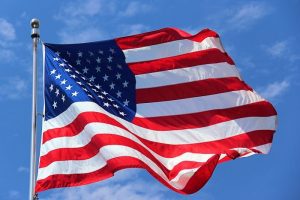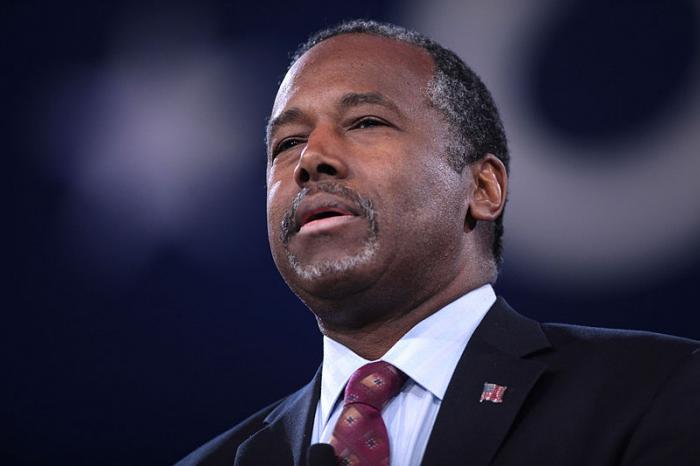
The voting may be over, but the issues and partisan resentments that divided Americans for the past four years will likely survive the election and ensuing court battles that could determine who is the next president.
This leaves a battle-weary nation with a dilemma: How do we heal?
On one hand, the divisions so evident on a map — the wide swath of red in the country’s midsection and South, the blue on the coasts — seem unfixable. Memes were circulating on social media Wednesday that said if you voted for Donald Trump, or for Joe Biden, we can’t be friends.
But the nation has recovered from worse wounds before, historians point out, most notably in the aftermath of the Civil War when Americans had to stop thinking of each other as us versus them, North versus South, Confederacy versus Union. We were blue or gray then; now we’re red or blue.
But a renowned political scientist at Harvard believes that it’s not the Civil War, but another period of history that can show Americans the way out of the current climate of acrimony and division.
Robert D. Putnam says the circumstances sowing division in America today — to include rising inequality, sweeping technological change, moral decay and cultural narcissism — were also present in large measure at the end of the 19th century.
“Looking back to a time Mark Twain disparagingly called the Gilded Age turns out to feel eerily like looking in a mirror,” Putnam writes in his new book, “The Upswing,” co-written with Utahn Shaylyn Romney Garrett.
But instead of staying mired in the muck, America clawed its way out, by becoming less of an “I” society and one more focused on “we,” Putnam and Garrett say. It didn’t happen after one election, but history shows a steady ascent that occurred over decades. Perhaps most significantly, it didn’t happen through the work of a single, charismatic leader, but collectively, through a society determined to change.
In fact, when and how we heal is up to all of us, analysts say.
The ‘I-We-I’ curve
This isn’t the first time that Putnam pinpointed an American problem and proposed ways to fix it. He explored the decline of community, social capital and civic engagement in his 2000 book “Bowling Alone” and the need to rebuild those facets of society.
A professor of public policy at Harvard and former dean of the John F. Kennedy School of Government, Putnam went on to write other books, including “Our Kids: The American Dream in Crisis,” which he had decided would be his last book until he stumbled across what he calls a “confluence of historical patterns” linking the late 19th and early 20th centuries to today.
When looking at where America was 125 years ago in four areas — economics, politics, society and culture — he found startling resemblance. “Inequality, political polarization, social dislocation and cultural narcissism prevailed — all accompanied, as they are now, by unprecedented technological advances, prosperity, and material well-being,” he wrote.
To track the country’s achievements, or failures, in each of those four areas over the past 125 years, Putnam created charts and found a pattern that he found “breathtaking.” In each case of cultural relevance — on topics as diverse as income inequality, the cultural salience of responsibilities versus rights, and cross-party collaboration in Congress — the trend line is an inverted U.
In other words, from about 1900 to the period between 1960 and 1970, America was steadily getting better, with greater economic equality, more cohesion and a stronger social fabric. Then, sometime between the 1960s and 1970s, we began to descend. We went from cooperation to polarization, from championing strong families to prizing individualism. While we have made progress in some areas, “we have sharply regressed in terms of shared prosperity and community values,” Putnam and Garrett write.
They dubbed this the “I-We-I” curve, since it shows an upswing of greater cohesiveness and community from which the nation ultimately descends.
While the turning point is easy to see on a graph, the causes of the reversal aren’t easily defined, Garrett said. “It’s a little bit like watching a flock of birds in flight,” she said. “All of a sudden, the entire flock will go in a different direction. And you think, well, which one turned first? But you can’t tell.”
Similarly, “when you look at all these disparate data trends, they turned at roughly the same time, with a couple of exceptions.” One exception is economic inequality, which Putnam and Garrett say is a lagging indicator, and not the trigger of other societal problems.
While Garrett is a fan of the Progressive Era and its policies, she said it wasn’t America’s political leadership that was responsible for the upswing, but ordinary citizens wanting change. For example, Teddy Roosevelt did not create, but capitalized on an issues-based movement that had begun decades before, she said. And the Social Gospel movement, which introduced Christian ethics to social problems, was a cultural response to social Darwinism and its creed of “survival of the fittest.”
“The upswing began long before the charismatic leadership came onto the scene. We think about the Progressive Era and Teddy Roosevelt, we tend to think about the big signature ‘we’ programs, Franklin Roosevelt, the New Deal,” Garrett said. “But when you look at where the curves begin their upward climb, it’s a couple of decades before that 1912 election. The charismatic national leadership is not what saved us last time. … America’s salvation actually comes from the vast upswell of citizen action.”
She cites Francis Perkins, Tom Johnson and Ida B. Wells, among others, as citizens who made a profound difference, along with the anti-lynching movement and the labor movement, as well as the push to build hundreds of new service-oriented civil society organizations in the new century. These groups, and others, were all “so diverse as to be barely coherent,” Putnam and Garrett write in the book, but that was what the Progressive movement looked like, Garrett said.
Invite people back
Tuesday’s results made clear that the 2016 election wasn’t an anomaly. “A lot of Americans are more concerned about me than about we,” U.S. Sen.-elect John Hickenlooper, D- Colorado, said Wednesday morning on MSNBC.
As co-executive director of the Boston nonprofit Essential Partners, which deals in conflict resolution and trust building, John Sarrouf is talking a lot about healing these days and warning of what is lost if America doesn’t do the hard work of repairing itself.
“If we’ve divided ourselves in half, which statistically we sort of have, and tomorrow we stay in these camps, as a country, we’re only half of ourselves, and we are missing the richness of each other, of our regional diversity, our religious diversity, our ethnic diversity. We’ve lopped off half of who we are from each other,” Sarrouf said.
Sarrouf believes that it’s important for Americans to put the election behind them, maybe even while the votes are still being counted: to put the campaign signs away, and to allow our political identities to retreat while focusing on our other identities, such as a parent or neighbor or person of faith.
Also, he said, “I would say we have to invite one another back into our lives. People unfriended people in the heat of the election season, stopped inviting people over for meals. I think inviting one another back into each other’s lives is an enormous and important first step.”
He added, “I think there is going to have to be a lot of caring for one another. A lot of people are going to feel misunderstood, not included. So this means caring for people whose side lost the election, whoever that is, and to help them feel that they belong.”
In the Detroit Free Press, bestselling author Mitch Albom wrote that no matter who wins, the election means nothing if Americans don’t do the hard work of repairing relationships and begin to treat each other better.
“We have all been behaving badly. I don’t mean every single American citizen, but I do mean wide swaths of us, in all states and in all walks of public life, politics, media, businesses, entertainment,” wrote Albom, the author of “Tuesdays With Morrie.”
“We dog each other. We point fingers. We fight over candidates, judges, medical experts, masks. Almost always these days, exaggeration is chosen over understatement. Anger over calm. Mean over kind. We have more than taken sides in America. We have tunneled moats,” Albom said.
Noting that the pandemic was an opportunity for Americans to become more united against a common threat, Albom said we allowed it to further divide us. If this month’s winners gloat and the losers protest, our society will further deteriorate, Albom argued.
“The truth is, our future won’t be determined by who we choose to lead us this week. It will be determined by how we act after we do,” he said.
To that, Sarrouf adds that there will be no solution to common problems if we remain in our divided state.
“If you care deeply about the causes that you advocate for and the beliefs that you hold, and you want to do something about them, you have to include everyone in these conversations because we are so divided that we will not get anywhere by ourselves. Anything that gets done in one election cycle will get undone in the next,” he said.
While there are close parallels in America of 1895 and America of 2020, they are not identical, and Garrett said it’s important to acknowledge the failings of the earlier time.
“It was not a fully inclusive movement. It was not a movement whose circle of all concern extended to everyone. It was still very much a white ‘we’ so whatever upswing we might see today must be fully inclusive,” she said, adding that lingering strife over race must be addressed before America can meaningfully address its other problems.
That said, both Garrett and Putnam are optimistic that America can be on the upswing again if we can collectively work toward that future by taking steps to build another “we” culture, such as focusing on moral and civic education.
“There’s always hope for an upswing but it depends on what we, the average Americans do. If we keep looking to Washington as our salvation, and then hating on Washington when they can’t solve our problems, we’re going to be stuck in this cycle forever,” she said.
Ultimately, it all comes down to choices, she said. “No matter what the outcome of this election, ultimately what matters most is what we do locally. How we respond personally. That’s the only place real change will take hold.”
Written by Jennifer Graham. First seen on Desert News.


